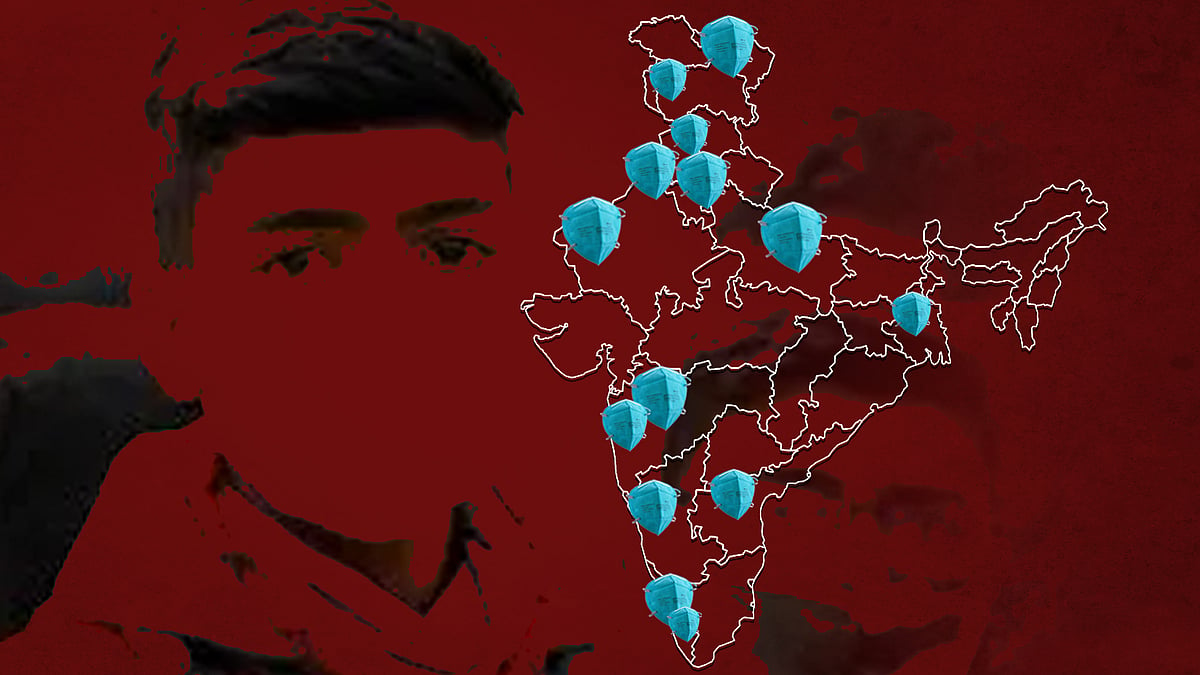‘I never left the city’: Why Indian officials are having a hard time screening for coronavirus
‘Phones have to be tracked to find people whose families claim they aren’t in town. And every now and then, the police have to be called.’
“I am not in the city!”
“I never left the city!”
These are the deflections commonly used by people seeking to avoid screening or quarantine for coronavirus infection, according to officials responsible for containing the spread of the pandemic.
Some people are also hiding their travel histories – all those who have travelled to the affected countries are mandatorily screened – and there have even been incidents of patients fleeing quarantine, giving the officials sleepless nights.
Aside from screening passengers at airports and train stations, officials in Rajasthan, Kerala, Uttar Pradesh, and Maharashtra said they have been told to isolate and test everybody living within at least 2 km of the spot where an infected person is found.
But officials on the ground are realising it is easier said than done.
“‘Not in the city’ is used when we reach the doorstep of someone who is to be screened but isn’t to be found at home. The only thing we want from them is to let us screen them for symptoms and ask them to isolate themselves for 14 days,” said Dr Mukesh Kumar Vats, Chief Medical Officer of Agra, Uttar Pradesh. “Mobile phones have to be tracked to find the location of the persons whose families claim they aren’t in town. And every now and then, the police have to be called.”
When they visit someone who must be screened because they have travelled to a place hit by the pandemic, Vats added, they often hear, “I never left the city!”
So, the officials have to dig up their history of travel outside the state or country, Vats explained.
Uttar Pradesh has reported 22 coronavirus infections so far, as per the central health ministry. At least eight of the patients are in Agra alone.
According to the state government, isolation wards have been set up in all 75 districts and medical staff trained to deal with the outbreak.
It is a similar story in Kerala, where 26 cases have been reported, as per data from the central health ministry.
Kerala was the first Indian state to report coronavirus infection. The first case was recorded on January 30 in Thrissur; it was a returning student at China’s Wuhan University. Two more cases were reported in the first week of February.
Seeram Sambasiva Rao, collector of Kozhikode, said they have deployed 1,668 Rapid Response Teams to surveil or quarantine the infected people. “We have strong surveillance at ward level, including response teams to ensure that people remain quarantined. On top of that, we have police squads,” he said.
Still, it’s not been easy keeping people in isolation. “We have seen people supporting the process, but there are those who aren’t conforming to guidelines,” Rao said.
They have filed criminal cases against three persons for flouting the isolation guidelines, he said, without giving details. “We keep visiting the places where people are quarantined from time to time in order to ensure that they are keeping themselves isolated,” he added.
Kozhikode currently has around 5,000 people in quarantine, Rao said.
In Maharashtra, four people being tested for the virus at Mayo Hospital, Nagpur, ran away before the results arrived.
“We used contact details they had given the hospital staff to locate them. We called and persuaded them to return to the hospital. Until then, we didn’t know if they had the infection or not. We had to tell them it was for their own good, and we kept at it until they came back,” said Ajay Kumar Malviya, inspector at the Tahsil police station in Nagpur. “We had to do the same with other people who were resisting screening and we have told the hospital to immediately call us if something similar happens.”
Maharashtra has reported 49 coronavirus infections so far – the most of any state in India – at least 18 of them in Pune alone.
Yet, Naval Kishore Ram, collector of Pune, complained, many residents of the city are not following social distancing guidelines. “They don’t understand the seriousness of the threat,” he added.
Social distancing is the most effective way to contain the rapid spread of the infection.
“We are promoting all social distancing measures in Pune. We have been able to reduce crowds in public places by about 60 percent. We are focusing on home quarantine of those who have come from outside and have no symptoms. Surveys are being done as well,” Ram said. “Some people try to resist since they do not understand the seriousness of the threat. It could also be because of their lack of awareness.”
At airports as well, officials are reportedly having a hard time persuading people to undergo screening. “We have to keep motivating people to get themselves screened. We have to do this until they give in and get screened for symptoms of coronavirus infection,” said Dr Anil Birla, Civil Surgeon, Rohtak, Haryana, who has been helping screen flyers at the Delhi airport.
As of March 20, India has screened at least 14,59,993 passengers at its airports. The number of coronavirus infections in the country stands at 223. At least 23 people have recovered.
 Why the coronavirus pandemic threatens rightwing politics globally
Why the coronavirus pandemic threatens rightwing politics globally How Indian states are gearing up to tackle the coronavirus pandemic
How Indian states are gearing up to tackle the coronavirus pandemic
